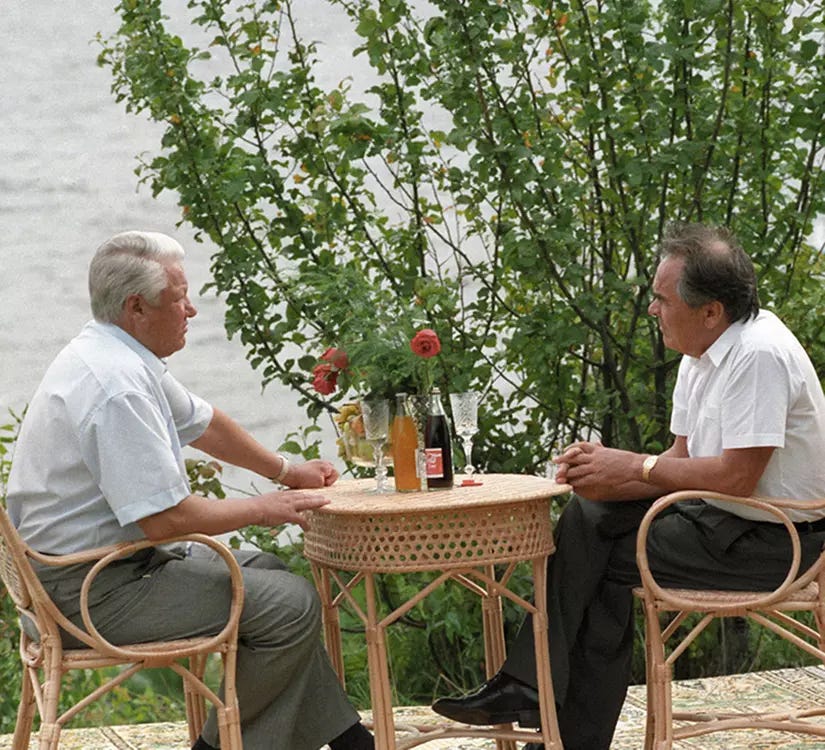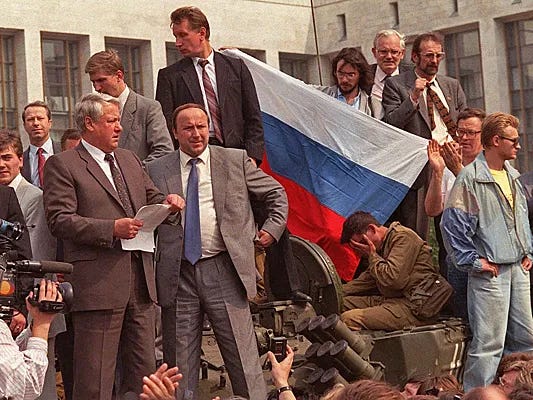In 1991, Moscow faced two disobedient ethnic republics: Chechnya and Tatarstan. In the political discourse of the era both were viewed and treated on pair, as two very similar cases. Both were the Muslim majority autonomies that refused to sign the Federation Treaty (1992), insisting on full sovereignty instead. In both cases, Moscow was determined to force them into obedience one way or another
Still, Moscow’s policy towards these two could not be more different. Chechnya was invaded, its cities razed to the ground, its leader assassinated.
Tatarstan, on the other hand, managed to sign a favourable agreement with Moscow that lasted until Putin’s era.
The question is - why.
Retrospectively, this course of events (obliterate Chechnya, negotiate with Tatarstan) seems to be logical and nearly predetermined. But it was not considered as such back then. For many, including many of Yeltsin’s own supporters it came as a surprise, or perhaps even as a betrayal.
Let’s see why:
By the early 1991 - in the last days of the Soviet Union - both Chechnya and Tatarstan were run by their respective “First Secretaries”. That is Communist officials leading the local Communist organisation and running the region in the name of the Party.
Tatarstan was run by Shaymiev, Chechnya - by Zavgayev.
Shaymiev (Tatarstan) Zavgaev (Chechnya)
That was the era of fierce and largely undercover struggle for power in Moscow. In that struggle, both Shaymiev and Zavgaev cautiously supported the enemies of Yeltsin, assuming they would win.
They were both mistaken.
In the events of August 1991, it was Yeltsin who took over, and assumed power in Moscow.
(Now the thing to understand about Yeltsin, is that he had been yet another First Secretary, now of Sverdlosk Oblast - who ended on top in the struggle for power)
Yeltsin (Sverdlovsk)
So what we have is a bunch of First Secretaries scheming, plotting, entering into coalitions against each other, some of these coalitions winning, others - losing. In August 1991, Yeltsin won, and ended on top.
Now simultaneously with a coup in Moscow, there was another coup happening - now in Chechnya.
Keep reading with a 7-day free trial
Subscribe to kamilkazani to keep reading this post and get 7 days of free access to the full post archives.








